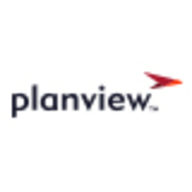

Digital.ai Agility and Planview AgilePlace compete in the agile project management category. Planview AgilePlace appears to have the upper hand due to its robust features that many users feel justify the higher cost.
Features:Digital.ai Agility offers advanced portfolio management, detailed reporting capabilities, and comprehensive project oversight. Planview AgilePlace provides visual task boards, exceptional workflow management tools, and effective real-time collaboration support.
Room for Improvement:Digital.ai Agility could improve its real-time collaboration features, enhance its integration options, and refine its user interface for better usability. Planview AgilePlace may benefit from expanding customization options, offering more intuitive reporting tools, and improving its mobile accessibility features.
Ease of Deployment and Customer Service:Digital.ai Agility ensures a straightforward deployment process with responsive customer support. Planview AgilePlace offers comparable service but distinguishes itself with customizable integration options, suiting organizations with complex requirements.
Pricing and ROI:Digital.ai Agility is competitively priced, offering significant ROI through its project tracking capabilities. Planview AgilePlace, although potentially more expensive, provides substantial returns on investment due to its user-friendly design and collaboration features.
| Product | Market Share (%) |
|---|---|
| Digital.ai Agility | 2.4% |
| Planview AgilePlace | 1.9% |
| Other | 95.7% |
| Company Size | Count |
|---|---|
| Small Business | 2 |
| Midsize Enterprise | 3 |
| Large Enterprise | 7 |
Enterprise business agility rests on agile planning that scales and has the flexibility needed to meet the needs of customers and the market. Digital.ai Agility enables organizations to scale up agile from the team level across the product portfolio, improve collaboration and efficiency, and deliver software that provides more value.
Planview AgilePlace is a cloud-based solution designed to provide businesses with a continuous flow of work to help teams accelerate delivery times by visualizing their work with enterprise Kanban boards and lean metrics. Planview offers project managers the visibility, resource management, and real-time analytics necessary to help their teams reduce bottlenecks and dependencies and work more effectively. By using Kanban boards, teams are able to visually track and manage the flow of their work from the strategy level, through implementation up to end-product delivery.
Planview AgilePlace Benefits
Planview helps teams to smoothly implement their strategies by offering its users the following benefits:
Reviews from Real Users
Planview AgilePlace stands out among its competitors for a number of reasons. Several major ones are its user-friendly management pane, the visibility that it provides for its users, and its agile management capabilities.
A manufacturing manager at a large manufacturing company writes, “Using the tool seems to save time versus trying to do things in a regular manner. It is highly collaborative; everybody can see things in one place. It is a highly functional, but pretty simple tool. That is hard to find: A tool that has a lot of functions, but is also simple.”
We monitor all Application Lifecycle Management (ALM) Suites reviews to prevent fraudulent reviews and keep review quality high. We do not post reviews by company employees or direct competitors. We validate each review for authenticity via cross-reference with LinkedIn, and personal follow-up with the reviewer when necessary.